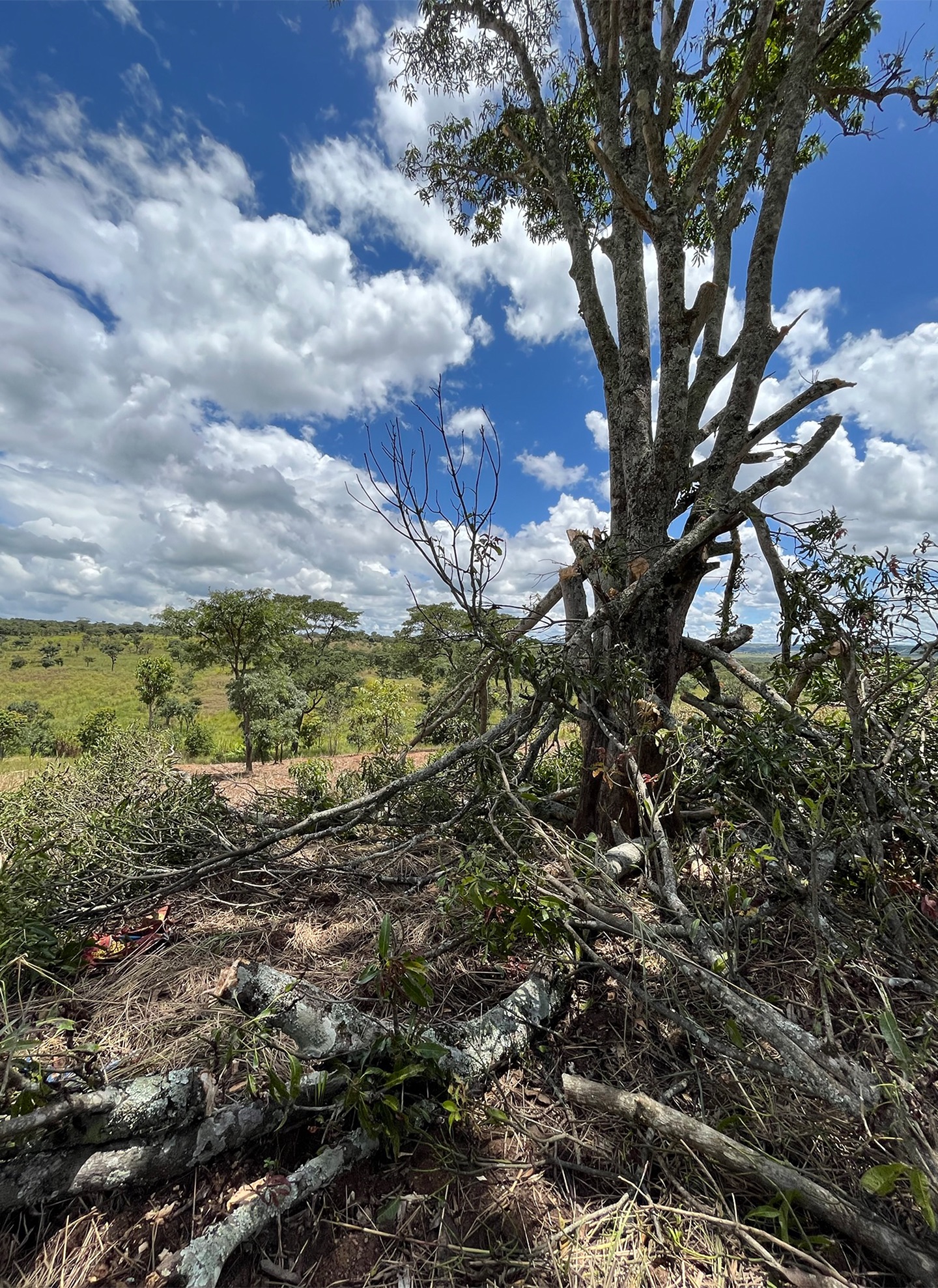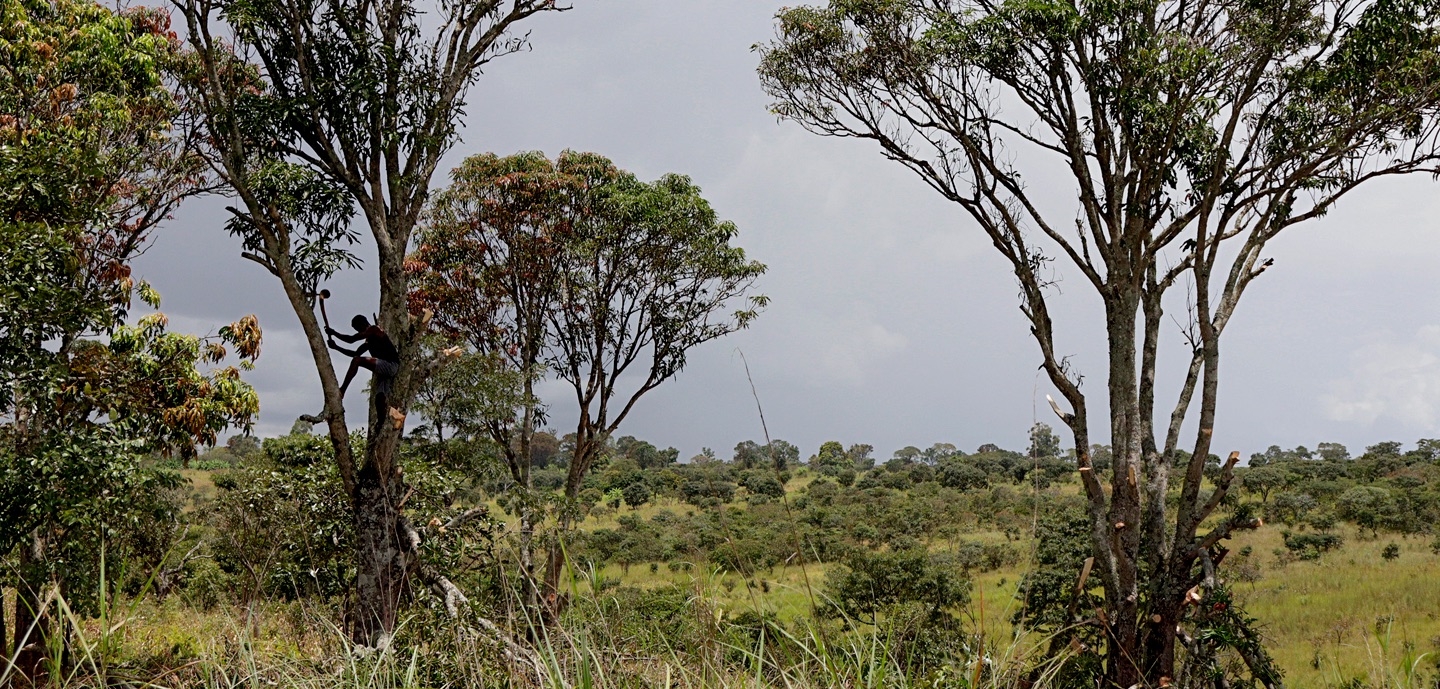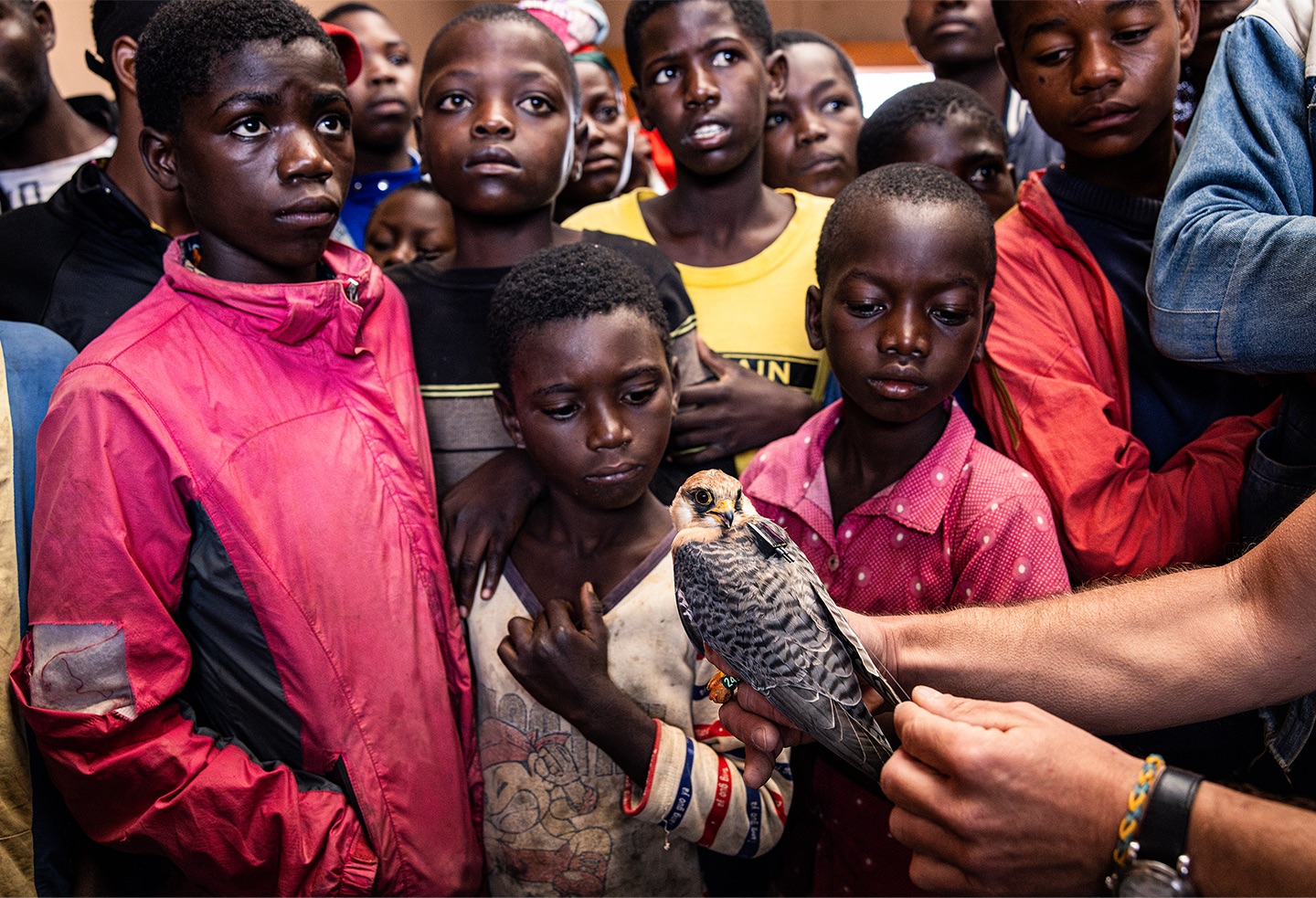Thousands
of Falcons
are harvested
each year
FROM ILLEGAL HARVEST TO ECOTOURISM
The Red-footed falcon is protected species in both the EU and in Angola. Their long migratory journey is supported by international conventions, yet enforcement of these conservation measures remains challenging.
In Angola, near to the capital of the Red-footed falcons, human communities face significant protein shortages, turning to bushmeat to sustain their diets.
Roosting falcons are easy prey.
When flushed with lights on rainy nights, they fall to the ground with wet wings, where they can be collected with bare hands in the morning.
Since 2019, municipal and provincial leaders and conservation authorities have recognized the severity of this issue.
However, the situation is more complicated than it seems at first glance. During the decades of the civil war in the second half of the 20th century, hundreds of thousands of landmines were installed. Not only people suffered enormously, but both livestock and terrestrial wildlife showed a significant decrease, leading to very limited availability of protein sources.
Local communities need enough healthy food to survive, and falcons need undisturbed habitat to fuel up for their long migratory journey.


The locals must understand that the place they live in is unique on Earth. They need to learn more about the falcons’ ecological role and how they benefit people.

The community also has to understand that habitat conservation and sustainable management of the falcons favors ecotourism, thus bringing sustainable benefits on the long term.
There is an urgent need to establish a COMMUNITY-BASED CONSERVATION program.
HOW CAN YOU HELP?
In Angola, near the capital of the Red-footed falcons, there are also human settlements. The lack of protein forces locals to look after bushmeat.
The peace that followed the end of decades of civil war has recently led to a population explosion among the region’s indigenous peoples. Landmines, planted by the hundreds of thousands during the war, have caused a significant reduction in the number of wildlife on the ground. Wild birds are now traditionally hunted.
Humans also need more resources – deforestation is a global problem. See the background.
According to the researchers’ observations, the falcons are mainly hunted by young guys in gangs. Tens to hundreds of thousands of birds, roused from their roosts at night by drenching tropical storms, quickly become flightless in the heavy rain.
The lucky ones can sit back down, but those that fall to the ground are collected by hunters at dawn. Birds drying in the trees are shot with slingshots. A further disadvantage of this method is that mongooses, stray dogs, are sure to cause considerable additional losses by picking up the grounded specimens
Since 2019, the problem has been recognised by municipal and provincial leaders and conservation authorities. They are not in favour of the hunt, but the recent visit has shown that they are not in a position to control the process effectively. The law prohibits the consumption of bushmeat throughout Angola, but no one in their right mind would believe that these regulations can be enforced without offering a real alternative.
Humans need enough healthy food to survive, and falcons need space and peace of mind. It is more important than ever that a community-based conservation and ecotourism programme is established as soon as possible to help them co-exist
© 2019-2024. FALCOPOLIS Hungary-Angola. All Rights Reserved.
